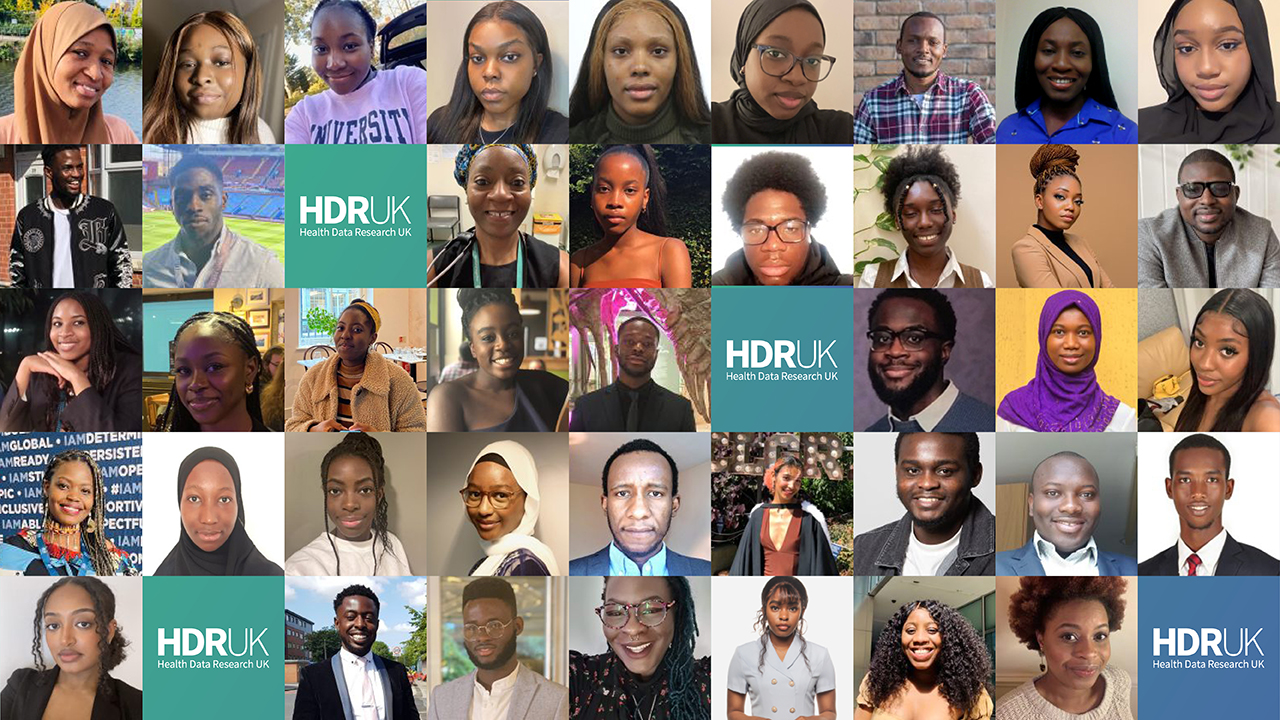Technical Staff - Making Modern Research Happen
6 December 2023 | Author: Rosie Wakeham, Head of Training
Technical professionals are vital to the future of health data research. HDR UK Head of Training, Rosie Wakeham, looks at the importance of their contribution, what a technical career can offer and how we are working to improve their career paths, visibility and recognition.
The technical staff in universities and research institutes are fundamental to the future of healthcare research. In fact, it couldn’t happen without them.
A key group are the research software engineers (RSEs) and research technical professionals, whose combined knowledge of software and research allows them to identify and provide exactly what a project needs to drive it forward – often acting as turbochargers for research teams.
The wide range of roles fulfilled by technical staff are integral to the complex patchwork of researchers, academics, healthcare professionals and other workforce groups that combine to carry out health data research.
All are interdependent and, if the UK wants to succeed in its ambition to be a world leader in health data research, we need to make sure that we are attracting the best and most talented people into each of its constituent areas.
That means offering careers where people can thrive, are well-rewarded for their work, and have clear paths for personal advancement.
This is why we are supporting and promoting the development of technical careers. Right now, the visibility, recognition, and career development needed to ensure a sustainable and thriving future are often lacking
HDR UK is enthusiastically backing the Technician Commitment as a signatory and with a 24-month action plan to bring practical change. It’s also why the Institute is sponsoring or exhibiting at a range of key events across the UK, as well as providing a range of training and learning using everything from our Futures online learning platform to online webinars.
The expertise of technologists in health data science is key to unlocking the data-driven innovations that will lead to improved patient outcomes and public health.
By supporting events across the country, the training team at HDR UK aims to help technologists in health data science gain new skills, network and develop their careers.
We supported two key networking events, in 2023, the RSE Midlands Annual Conference and RSECon23 in Swansea. We also took part in TechxFest, exhibiting in Derby to 2,000 school children in years 9 and 10 on health data science careers.
Just one example of the wide range of training and learning we have delivered, was a free webinar on reproducible analytical pipelines in October.
The importance of RSEs was recently summed up very well by Dr Sam Cox, Senior Research Engineer, University of Nottingham and HDR UK Associated Researcher, who said:
“In academia we are the people who bring together an expertise in programming with an intricate understanding of research.
“RSEs work with researchers to understand the problems they face then develop, maintain and extend software to provide the answers. We make modern research happen. And it’s an increasingly exciting career option.”
His final observation applies to all areas of technical work as they expand, develop and become increasingly central to healthcare data research.
If you are looking for a career on the frontline of healthcare development, one with a direct and positive impact on the world, then this field could be something to consider.
It can offer many benefits including:
- The chance to work with remarkable and dynamic colleagues from many disciplines such as healthcare and computer science.
- Opportunities to have a direct impact on shaping important advances in patient care.
- Facilitating research outcomes that improve public health
- Exciting opportunities for personal career development.
However, there is still a way to go in ensuring that technical careers offer everything they should. One of the main issues we are seeking to address is a lack of consistency. Technical careers in health data science need to be more visible and better recognised with clear, fulfilling career paths for development and advancement. This is already happening at many institutions, but it should be universal.
These goals are being championed by HDR UK in partnership with academics and organisations throughout the country. And the sooner they are achieved the better for technicians, for research and ultimately for patients.
- For more about a career as an RSE click here.



